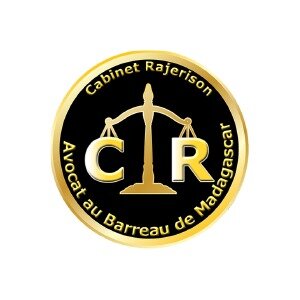Best State, Local, and Municipal Law Lawyers in Madagascar
Share your needs with us, get contacted by law firms.
Free. Takes 2 min.
Or refine your search by selecting a city:
List of the best lawyers in Madagascar
About State, Local, and Municipal Law in Madagascar
State, Local, and Municipal Law in Madagascar encompasses the regulations and legal frameworks that govern the country's decentralized administrative structures. Madagascar, as a unitary state, allocates specific powers to regional and municipal authorities to ensure local governance and management of public affairs. The central government provides overarching guidance, while local laws and regulations address specific regional and community needs. Understanding these laws is crucial for effective compliance and navigating the governmental processes at various administrative levels.
Why You May Need a Lawyer
There are multiple scenarios where seeking legal assistance in the domain of State, Local, and Municipal Law in Madagascar might be necessary:
- Disputes with local government bodies over zoning, land use, or property decisions.
- Clarification on local tax obligations and compliance with municipal tax laws.
- Assistance with business permits, licenses, and regulatory requirements enforced by local authorities.
- Addressing violations of community ordinances and local regulations.
- Engagement in public tenders or procurement processes managed by municipal bodies.
Local Laws Overview
Local laws in Madagascar pertain to regulations enacted by regional or municipal authorities. These include:
- Zoning and urban planning regulations guiding land use and property development.
- Local taxation schemes influencing property tax, business levies, and other charges.
- Public health and safety codes, particularly those affecting businesses and construction.
- Environmental regulations tailored to protect local ecosystems and resources.
- Local business regulations, including licensing and operating restrictions.
Frequently Asked Questions
What constitutes municipal law in Madagascar?
Municipal law refers to the body of laws and regulations implemented by local government authorities, addressing community-specific issues like zoning, local taxation, and municipal services.
How are local government representatives elected in Madagascar?
Local government leaders, such as mayors and council members, are elected through locally organized elections, which may vary from region to region but are generally held every five years.
Are there differences in laws between regions in Madagascar?
Yes, regional laws can differ, as each local government has the authority to enact laws relevant to their specific needs, within the framework provided by the national government.
If I have a dispute with a local government decision, what are my options?
You can appeal to higher administrative bodies or seek judicial review if you believe a local government decision infringes on your rights or violates legal principles.
What role do traditional leadership structures play in local governance?
Traditional leaders often hold informal power in many rural areas and may influence local governance, especially in community-led decision-making processes and dispute resolution.
Can local governments create taxes in Madagascar?
Local governments have limited authority to impose taxes as prescribed by national legislation, primarily to finance public services and infrastructure projects.
How do I keep up-to-date with changes in local laws?
Regularly review local governmental bulletins, attend community meetings, and consult with legal professionals to stay informed of any changes.
Can local laws be challenged in court?
Yes, if local laws are deemed inconsistent with national law or infringe on constitutional rights, they can be challenged in court.
Where do I find information about local business regulations?
You can access information through local government offices or their official websites, which provide guidelines and requirements for conducting business locally.
How do land use and zoning laws affect property rights?
These laws specify what activities can be conducted on a property, affecting everything from residential building limits to commercial property licenses, and ensuring that land use aligns with community plans.
Additional Resources
For further assistance, consider reaching out to the following resources:
- Ministry of Decentralization and Local Development: Oversees local governance and development initiatives.
- Local Government Offices: The primary point of contact for municipal services and information.
- Legal Aid Offices: Provide legal assistance and guidance in navigating local laws.
- Local Bar Associations: Can help connect you to lawyers specializing in State, Local, and Municipal law.
Next Steps
If you need legal assistance in the field of State, Local, and Municipal Law in Madagascar, consider taking these steps:
- Identify your specific legal issue and gather all relevant documentation.
- Consult with a lawyer who specializes in local governance issues to provide you with tailored advice.
- Contact local authorities for preliminary guidance and clarification regarding your concerns.
- Utilize available resources such as local legal aid services and governmental bodies for additional support.
Lawzana helps you find the best lawyers and law firms in Madagascar through a curated and pre-screened list of qualified legal professionals. Our platform offers rankings and detailed profiles of attorneys and law firms, allowing you to compare based on practice areas, including State, Local, and Municipal Law, experience, and client feedback.
Each profile includes a description of the firm's areas of practice, client reviews, team members and partners, year of establishment, spoken languages, office locations, contact information, social media presence, and any published articles or resources. Most firms on our platform speak English and are experienced in both local and international legal matters.
Get a quote from top-rated law firms in Madagascar — quickly, securely, and without unnecessary hassle.
Disclaimer:
The information provided on this page is for general informational purposes only and does not constitute legal advice. While we strive to ensure the accuracy and relevance of the content, legal information may change over time, and interpretations of the law can vary. You should always consult with a qualified legal professional for advice specific to your situation.
We disclaim all liability for actions taken or not taken based on the content of this page. If you believe any information is incorrect or outdated, please contact us, and we will review and update it where appropriate.
Browse state, local, and municipal law law firms by city in Madagascar
Refine your search by selecting a city.










